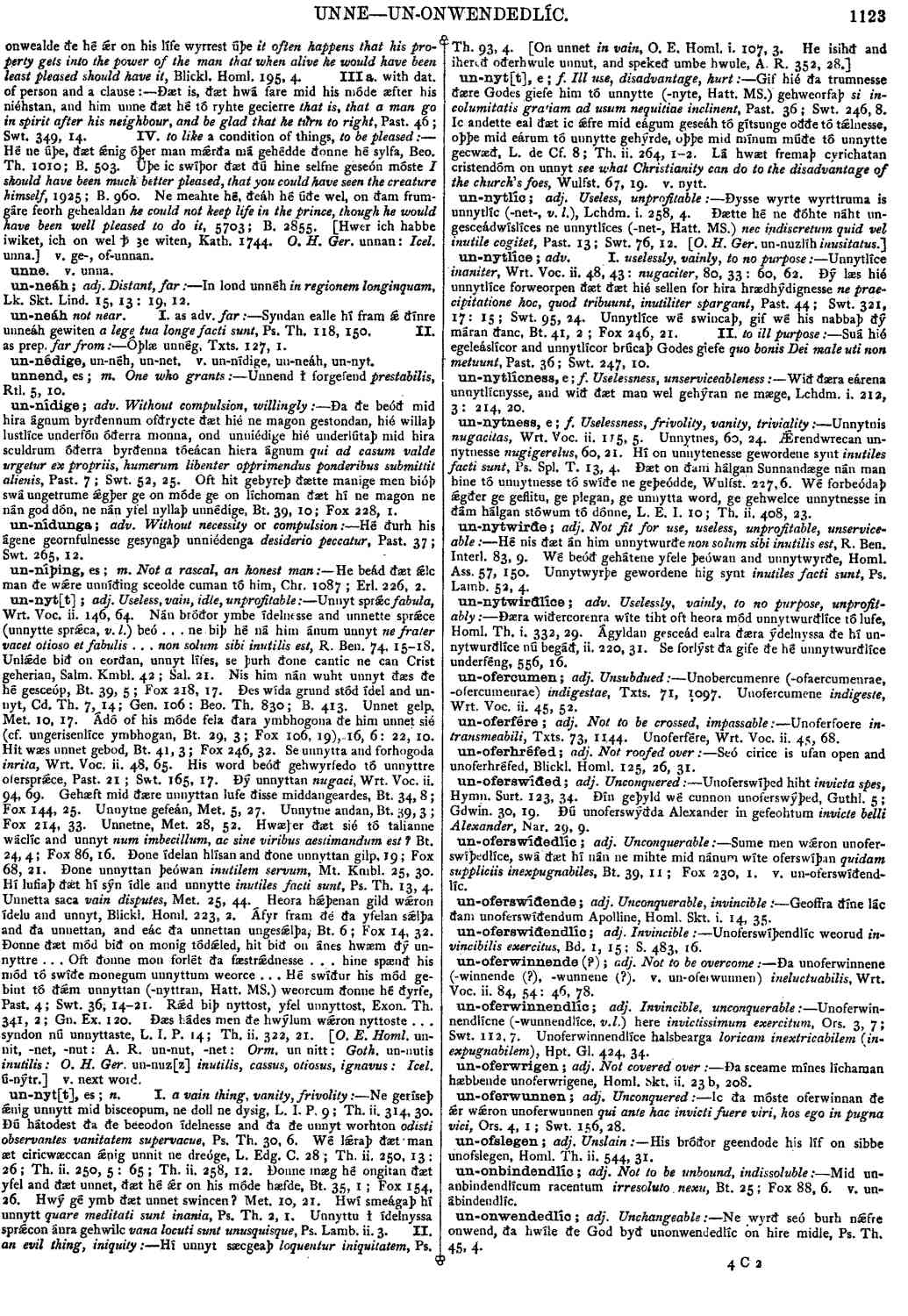un-nyt
- noun [ neuter ]
-
Ne geríseþ ǽnig unnytt mid bisceopum, ne doll ne dysig,
- L. I. P. 9 ;
- Th. ii. 314, 30.
-
Ðú hátodest ða ðe beeodon ídelnesse and ða ðe unnyt worhton
odisti observantes vanitatem supervacue,
- Ps. Th. 30, 6.
-
Wé lǽraþ ðæt man æt ciricwæccan ǽnig unnit ne dreóge,
- L. Edg. C. 28 ;
- Th. ii. 250, 13: 26 ;
- Th. ii. 250, 5: 65 ;
- Th. ii. 258, 12.
-
Ðonne mæg hé ongitan ðæt yfel and ðæt unnet, ðæt hé ǽr on his móde hæfde,
- Bt. 35, 1 ;
- Fox 154, 26.
-
Hwý gé ymb ðæt unnet swincen?
- Met. 10, 21.
-
Hwí smeágaþ hí unnytt
quare meditati sunt inania,
- Ps. Th. 2, 1.
-
Unnyttu ł ídelnyssa sprǽcon ánra gehwilc
vana locuti sunt unusquisque,
- Ps. Lamb. ii. 3.
-
Hí unnyt sæcgeaþ
loqueutur iniquitatem,
- Ps. Th. 93, 4.
- O. E. Homl. i. 107, 3.
- A. R. 352, 28
Bosworth, Joseph. “un-nyt.” In An Anglo-Saxon Dictionary Online, edited by Thomas Northcote Toller, Christ Sean, and Ondřej Tichy. Prague: Faculty of Arts, Charles University, 2014. https://bosworthtoller.com/33581.
Checked: 1